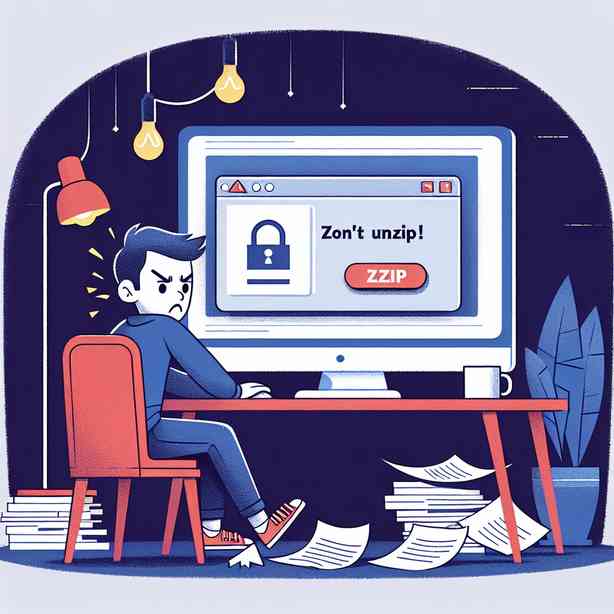
Creating a zipped file is a common task in the digital age, often done to save space, organize data, or simplify file transfers. However, there are times when a zipped file may mysteriously refuse to unzip, creating a frustrating experience for users. This situation can arise due to various reasons, ranging from software issues to data corruption. In this discussion, we will explore these underlying causes, provide solutions, and share best practices to mitigate such experiences in the future.
The first step in understanding why a zip file won’t unzip is recognizing the potential for corruption. File corruption can occur during file transfers, especially if the process is interrupted or if the storage medium has defects. Corrupted zipped files may display error messages when users attempt to extract them. To prevent data loss, it is prudent to ensure the integrity of files before compression; this can be achieved by performing checks on the data or using validated software that can detect potential issues before zipping.
Another cause for unzipping issues could be related to the software being used to open the zipped file. Different compression formats and algorithms can lead to compatibility problems. For instance, some users might create a zip file using advanced compression methods that older software can’t interpret. Therefore, it is essential to keep your software updated and to be aware of the capabilities of the tools you are using. In some cases, trying alternative applications to unzip the file could resolve the issue, so having multiple software options installed could be beneficial.
Compression settings are also an important consideration. When creating a zipped file, users can often adjust settings related to the compression level, encryption, and file fragmentation, among others. High compression rates, while effective in reducing the file size, can sometimes lead to complications during extraction. If the zip file is encrypted with a password, an incorrect password will obviously prevent the file from being unzipped. Therefore, it’s imperative to keep track of passwords and to ensure that the chosen compression settings are suitable for the intended purpose.
Data integrity is another critical factor. The use of checksums such as MD5 or SHA-256 can help verify the integrity of the zipped file. By generating a checksum before and after transferring the file, users can confirm that the file has not been altered during the transfer process. If discrepancies arise, it may signal potential corruption, prompting the user to resend or re-download the zip file. This proactive approach can save time and effort in managing files.
Moreover, the operating system can also influence the ability to unzip files. Different operating systems have varied support for file types and compression formats. For instance, Windows users may find that built-in tools are limited compared to third-party applications, while Mac users may encounter issues with compatibility when using zipped files created on a different platform. Familiarizing oneself with the intricacies of the operating system and its file handling capabilities can enhance the user experience and reduce the likelihood of encountering issues.
To further complicate the matter, malware can disguise itself within zipped files. In some instances, malware may even prevent extraction as part of its functionality, ensuring that users cannot access the files. Users should always exercise caution when downloading or sharing zipped files from untrusted sources. Running antivirus software on downloaded files before unzipping them is a wise precaution. Additionally, using trusted file-sharing services can help alleviate concerns about malware, as reputable platforms often implement scanning protocols.
In situations where a zipped file still refuses to unzip despite taking all precautions, data recovery options may become necessary. Specialized software tools can sometimes recover corrupted files or extract usable data from damaged archives. While these recovery tools can be effective, it is important to use reputable programs to avoid additional complications. Investing time in researching the best recovery options can lead to successful data retrieval and save important information from being lost permanently.
In concluding discussions about zipped files that won’t unzip, it’s clear that multiple factors can contribute to this frustrating situation. Understanding the common causes, from file corruption to software compatibility, is essential for troubleshooting. By employing best practices such as verifying file integrity, using effective software, and ensuring proper data handling, users can minimize the likelihood of encountering these issues in the future. The digital world is constantly evolving, and remaining informed about file management techniques will greatly enhance productivity and reduce the stress associated with file handling.
Beyond the technical aspects, it’s also helpful to maintain a mindset of patience and persistence when dealing with unzipping issues. Technology can be unpredictable at times, and adopting a flexible approach can often lead to resolution. By following the guidelines shared in this discussion, users can navigate the complexities of zipped files with confidence, ensuring that their data remains accessible and secure. In this way, every experience, even the troublesome ones, can serve as a learning opportunity, refining your skills and enhancing your understanding of digital file management.


